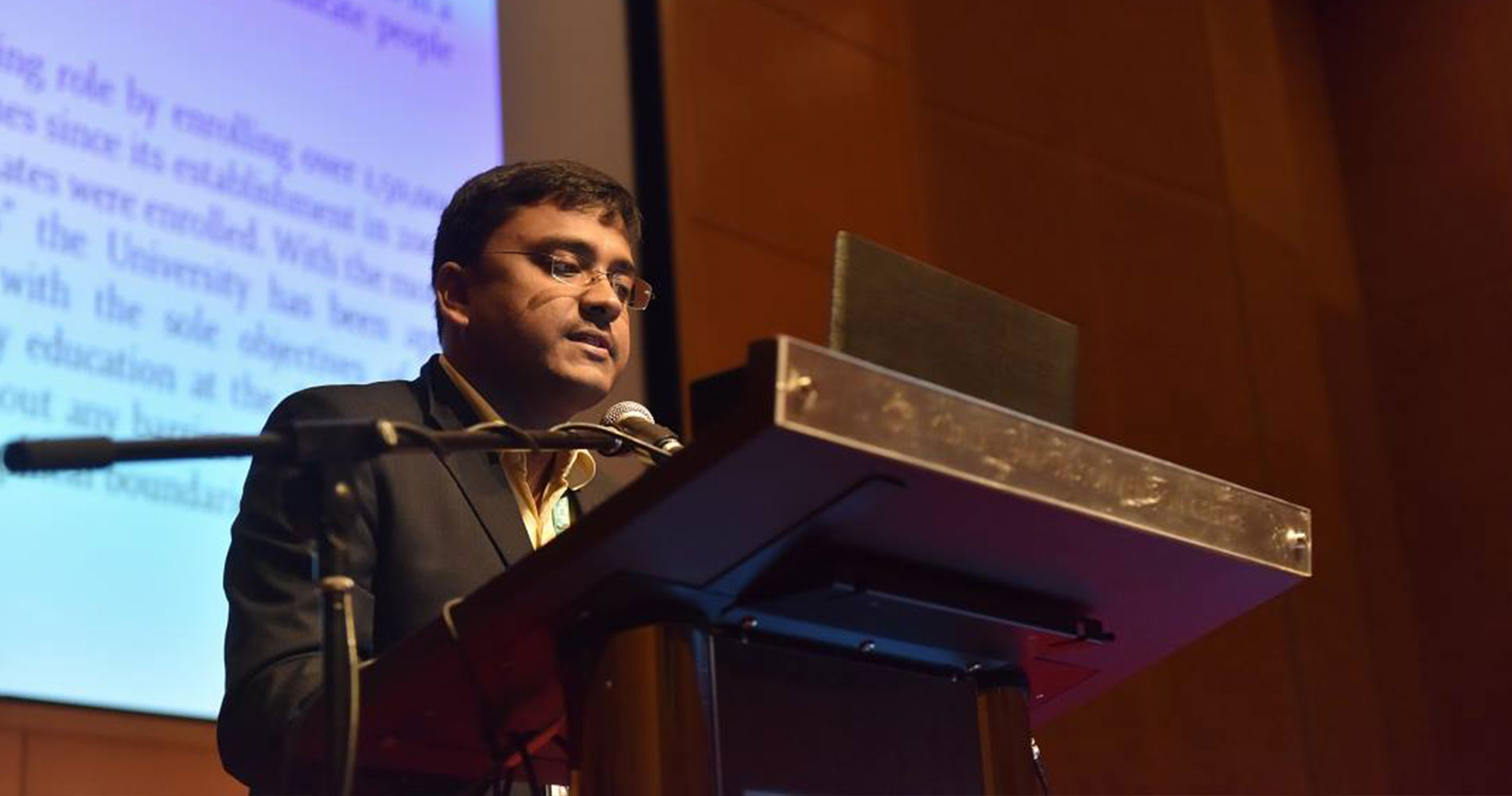
SUB-THEME: QUALITY AND EQUITY IN LEARNING
PARALLEL SESSION 2:
CASE STUDIES: INSTITUTIONAL AND PERSONAL EXPERIENCES 1
Conference Hall, 28 November: The session on “Case Studies: Institutional and Personal Experiences 1” provided an excellent platform for the exchange of ideas and experiences on quality and equity issues related to education.
Dr Prasenjit Das of Krishna Kanta Handiqui State Open University (KKHSOU), India, shared the university’s experiences in offering ODL programmes and the employment prospects of its ODL graduates.
A survey by the University found that many of the graduates have difficulty in securing jobs despite having degree qualifications. Dr Das said the Government and private sector should create more opportunities for these graduates to secure jobs.
Dr Mohammed Ajmal spoke of the gaps between theory and practices in instructional design processes at Allama Iqbal Open University, Pakistan. A study was conducted to evaluate the instructional design system of the university; explore the gaps between theory and practices of instructional design processes; and propose strategies for improvement in the instructional design system. The findings showed that the course objectives and contents were developed based on learners’ profiles while the distance learning activities were designed in a logical order. Dr Ajmal concluded that multimedia support, use of modern educational technology, student support services and evaluation system were essential in order to enhance the instructional design processes.
Prof Dr Satish Rastogi from University of Swaziland said in a distance education scenario, the 5Ms (man, machine, money, material and method) should be in perfect coordination with each other for a product to function successfully. He said to improve the quality of distance education systems, counselling for academics in terms of emotional and technological support was important to ensure effective teaching. Learning materials should also be consistently updated to ensure the contents are relevant and current.
Former Chief of the Higher Education Section at UNESCO, Ms Stamenka Uvalic-Trumbic, talked about the adoption of quality assurance in higher education and the role of institutions in promoting equity in education.
She said institutions must have the will to combat academic corruption, which could be done by providing protection to the whistle blowers and not sweeping the truth under the carpet.